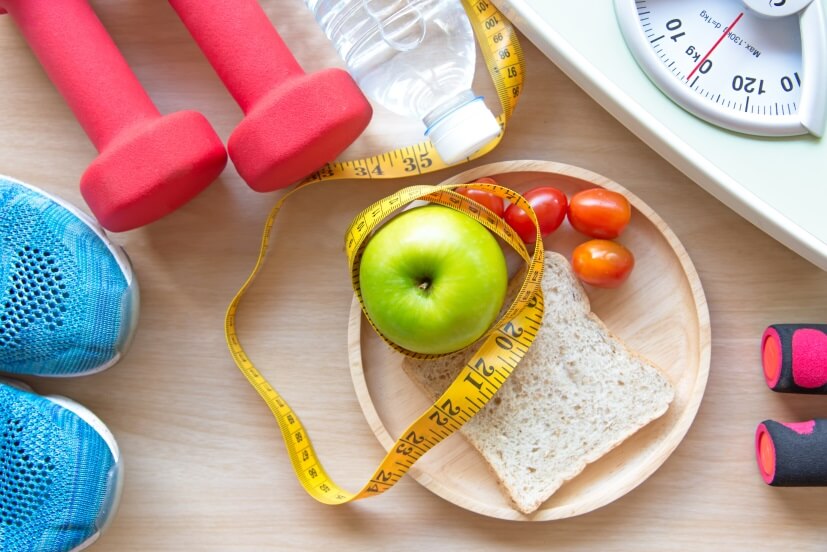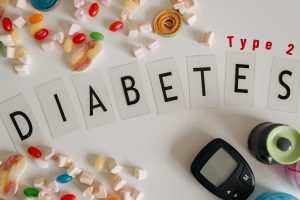If you are like many people who keep working out but feel that they are not going anywhere with their weight loss, maybe the reason behind this is your metabolism. Metabolism is the process by which your body converts the food and drink that you consume into usable energy for you to stay alive and active.
Each person is different, and their metabolism rate livescan be based on his/her lifestyle and diet. It can increase and decrease based on their age, gender, body size, activity level, and overall health.
As mentioned, metabolism helps you stay alive. This is because you rely on it to breathe, think, digest food, circulate blood, keep warm when cold, and keep cool during hot periods.
Most people think that boosting their metabolism will help them burn more calories and increase weight loss, but they do this by exercising more. However, excessive exercising can also lead to exercise emergency. Instead, do the following steps to boost your metabolism:
- Drink up. Drink lots of water daily. Water helps maintain the balance of body fluids, including its digestion, absorption, circulation, creation of saliva, distribution of nutrients, and body temperature maintenance.
Health experts recommend at least eight glasses of water from an 8 oz. glass or at least 2L or half a gallon a day, but this also depends on many factors, including your age and weight. It is also recommended to drink water before a meal to enhance metabolic speed. In order to ensure that you’re drinking an adequate amount of water daily, you can opt to buy a water dispenser. This helps you to have easy access to drinking water so you can easily refill your glass or tumbler.
- Eat small meals and do portion control. Instead of having that one giant meal, eat five small meals every three hours. Monitor your portion sizes and eat slowly. Doing this will help your body feel full without overdoing it. When done correctly, eating frequently can actually boost your metabolism, but more so when you eat the right kind of food.
Listen to your body for hunger cues. Try eating when you feel hungry and stop before you feel too full.
- Eat more healthy foods.
- Fiber up. Eat more vegetables and fruits, not only for their nutritional value but also for fiber. Fiber is essential in the body because it aids in digestion. It has a brush effect that helps clean out bacteria and other buildups in the intestines, keeping your digestive system clean and healthy and reducing constipation.
- Eat lean meats, beans, and legumes. Lean meats, beans, and legumes are good sources of protein and have fewer calories. Lean meats are particularly a good source of iron, zinc, and B12, which are easily absorbed by the body. Beans and legumes contain antioxidants that help prevent cell damage and fight the signs of disease and aging.
- Consume healthy fats such as nuts, seeds, avocados, olives, and fishes rich in Omega-3. Healthy fats provide energy, support cell growth, protect organs, and keep the body warm. In addition, this type of fat can protect against memory loss and dementia, support a healthy pregnancy, battle fatigue, and balance mood, among other helpful benefits.
Saturated and trans fats are the worst types and can come from fried foods, margarine, shortening, processed and packaged foods, lard, and palm oil.
- Eat more mineral-rich food. Seaweed and seafood are rich in iodine, while some nuts, seeds, mushrooms, fishes, and shellfishes are high in selenium—both are vital for the thyroid gland. Iodine deficiency can lead to swelling of the gland or goiter and hypothyroidism, which can cause fatigue, muscle weakness, and weight gain.
Other sources of iodine and selenium are prunes, cheese and yogurt, eggs—especially egg yolk—and iodized salt.
- Cook and consume cruciferous vegetables. Cruciferous vegetables are cabbage, arugula, broccoli, brussels sprouts, cauliflower, kale, and the like. They are rich in nutrients like Vitamins C, E, and K and are also a good source of fiber.
- Reduce or completely stop eating processed, refined, and packaged food. Processed and packaged food items contain high levels of sugar, salt, and fat. Too much of these can lead to obesity, heart disease, high blood pressure, and diabetes. Refined foods are those with parts removed, leaving the item with fewer nutrients. An example of this is white rice.
White flours undergo processing that removes the fiber from the grains used to make them. Plus, these do not add any nutritional value to the body. Instead, add more whole foods in your diet. Whole foods are food items that have not been altered from their natural state so their nutrients have not been removed in the process.
- Do something active daily and sleep regularly. Exercise helps boost your metabolism, manage weight, and reduce the health risks generally associated with living a sedentary lifestyle. Other physical activities include doing household chores and hobbies. Walking is a non-strenuous form of physical activity, and if you do this outside, you get to enjoy the fresh air and a different view.
Yoga is another form of physical activity that you can do, as it unblocks the natural flow of energy through your body. Include lifting weights when you exercise to boost your muscle-to-fat ratio. The more muscle you have, the more energy you need to burn to function and maintain.
With such busy lifestyles to keep up with a fast-paced world, the importance of getting a full eight hours of sleep has been shoved at the backburner. Irregular sleeping habits are bad for many reasons, one of which is that it harms your metabolism, causing stress eating and cravings for sugary and other refined food items.
To help boost your metabolism, establish a sleeping schedule and stick to it.
Metabolism is more than just a weight-loss process
When it comes to your metabolism, always factor in your age, gender, body composition, diet, physical activity, and overall lifestyle. If you’re trying to boost your metabolism, your primary focus must be to live healthily.
Vital functions, such as breathing, the beating of the heart, and balancing body temperatures, require at least 70% of your body’s energy. Digestion takes up 10–15% of your energy, while energy for physical activities and workouts only amounts to 15–30%. Boosting your metabolism doesn’t always mean you will lose weight or become healthy, but it is an investment you need to make to live healthily.












